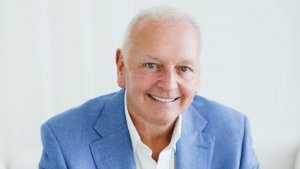Why Entrepreneurs Should Be Watching The X Factor, Not Dragons’ Den Or The Apprentice
The X Factor provides incredible insights for entrepreneurs; you just have to know where to look.

Like it or not, and plenty of people don’t, The X Factor is a cultural phenomenon. Now in its 13th year, it’s syndicated in more than 50 countries around the world and regularly watched by over 8 million viewers in the UK alone.
It’s also not the not the first thing that springs to mind when you think of Eric Ries’ entrepreneurial bible, The Lean Startup, and its core principles of MVPs (Minimum Viable Products), build-measure-learn and customer feedback.
But in fact, those principles have played a huge part in making The X Factor the global success it is.
No, I haven’t taken leave of my senses. Here’s why entrepreneurs are better off watching Simon Cowell’s pop juggernaut than taking notes on Dragons’ Den or The Apprentice.
Open innovation and customer development
The X Factor begins, like all good startups, with open innovation. It actively engages its audience, or customers, to crowd-source new ideas, or singers, for its innovation pipeline.
The audition process allows the show’s producers and judges to both source talent and determine which talent resonates most strongly with its intended audience. In other words, it simultaneously manages supply and demand to build a two-sided market place.
Auditions certainly make for good TV, but also represent excellent customer development. This initial audience engagement enables The X Factor to establish customer-problem fit – to quickly identify which new singers have the singing ability and stage presence to appeal to a potential audience.
MVPs and product-market fit
Next comes product-market fit, as The X Factor’s Bootcamp and Judges’ Houses stages whittle down the number of performers to a final twelve contestants. It is in effect hedging its bets early on, employing portfolio theory across a range of early-stage investments.
As the Live Shows stage begins, we get a first look at The X Factor’s MVPs – or finalists – for that year. Take any contestant and marvel at the transformation from the raw performer of the earlier rounds into the burgeoning superstar presented on live TV.
This is a first best guess of the type of artist they can be; a basis to iterate and pivot from using the customer insight the show is collecting.
Customer development continues through as the show progresses through ten one-week sprints, or weekly episodes, just like any startup applying lean methodology.
Each week the contestants are put through their paces with a different music genre. This isn’t purely for entertainment: it’s so the show can determine product-market fit with a series of experiments. Which genre best suits each artist? Testing the product live on stage provides the answer.
Throughout, the judges act as early stage angel investors, responsible for guiding each act throughout the weekly sprint. They help develop the critical hypothesis they want to test, and then apply build-measure-learn in its most classical sense. Cyclically they build each contestant’s act, measure their success, and learn from the results.
Iteration and customer validation
To illustrate how the X Factor has iterated its core concept, consider the introduction of The Fifth Judge play-along in 2013 through the official app. It represents a significant move towards increasing the likelihood of product-market fit, using the power of aggregated customer data.
The move towards real-time audience insight, away from the simple phone vote, provides immensely useful data. Using it, the judges are better able to gauge audience sentiment, reflect that in their feedback, and use it to improve the MVP for the next round of performances.
Through a process of elimination, The X Factor develops the market and engages an audience by allowing them to select the artists they are most interested in.
At the same time the show concentrates the market: losing contestants drop out of the running, and its audience shifts allegiances to one of the remaining performers. It’s a hugely smart way to build and engage a market, at the same time maximising your chance of success when you finally launch.
De-risking and diversifying
By the time the show reaches its climax, The X Factor has attempted, like any good entrepreneur, to reduce its risk of failure. It does this by launching a pilot, testing the market with a low risk proposition, and doing it at speed.
Usually, this involves covering an already successful song. Why risk creating an entirely new song when you can raid a back catalogue to achieve a best-fit to the winning artist?
Simon Cowell’s Syco is making a significant investment in the winner, and wants to be sure it has the strongest investment vehicle possible in order to maximise their return.
In that respect, you can think of Syco much like an early stage VC that employs a studio model to create its investment portfolio. Which should illustrate how smart The X Factor is as an innovation arm developing new products that stand the best chance of market success.
Syco is also like a VC in the way it diversifies its portfolio. Often, the eventual winner of The X Factor isn’t the act that ultimately becomes most successful, and so all contestants are locked down to binding contracts early in the process.
One Direction, who finished third in 2010 and went on to become some of the highest-earning celebrities in the world, are the perfect example of why hedging your bets in this way makes sense.
So, unlikely as it might sound at first, Simon Cowell and Eric Ries have a lot more in common than you’d think. The X Factor is more than just a talent show: it’s one of the foremost examples of lean startup in action.
Constantly iterate your early stage product, using validated learnings from customers, to build a market and reduce your chance of failure. There is serious method in The X Factor madness, and it provides great learning for any early stage business.
Jonathan Carrier is Head of InMotion
Thanks for signing up to Minutehack alerts.
Brilliant editorials heading your way soon.
Okay, Thanks!




